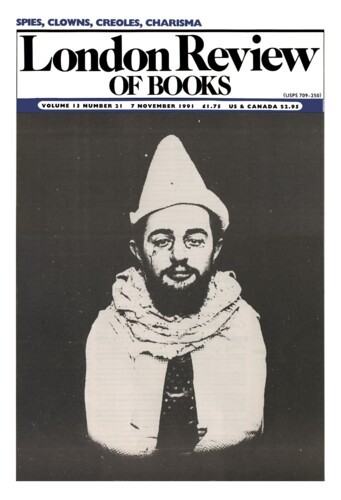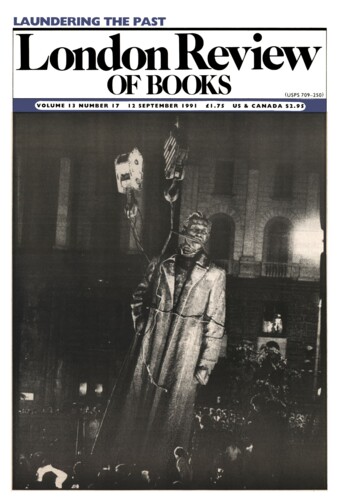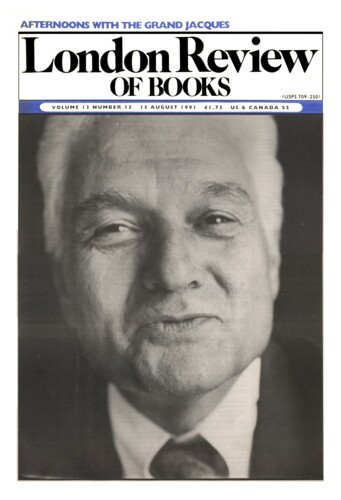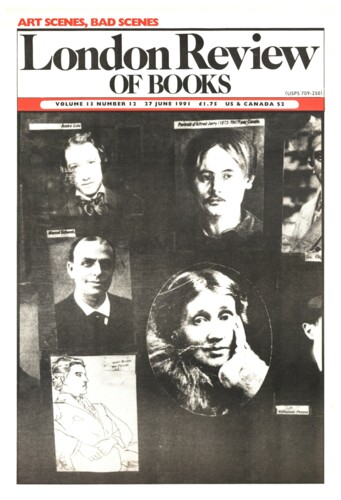Poem: ‘In the street’
D.J. Enright, 7 November 1991
Did I imagine that romantic story? – England 1919, and the war just over, It was raining hard, and she could see A soldier, looking lost, was getting wet. Her umbrella offered decent room for two: And that was how they met.
He didn’t rejoin the Dublin Fusiliers, Didn’t go back to Ireland, Little work there, lots more rain. Better to stay and be a British husband.
Did our...




